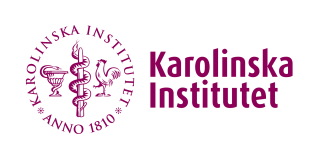What is GOING-FWD?
Project title: Gender Outcomes INternational Group: to Further Well-being Development (GOING-FWD)
Background:
The distinction between sex and gender has largely been neglected in health science research. While differences in health status and outcomes have been attributed to biological sex, it is now increasingly recognized that both sex and gender influence the risk of developing certain diseases, presentation of symptoms, severity of illness, response to drugs or non-pharmacological interventions, and even how one seeks health care. When considering gender in the evaluation of clinical outcomes, the first hurdle to cross originates from the lack of a standardized method to measure the complexities of all that gender encompasses. The GENDER-NET Plus Joint Call on Gender and United Nations Sustainable Development Goals provided a unique unparalleled opportunity to further the understanding of the impact of the intersectionality of gender-related factors on health outcomes in patients with chronic diseases in a multinational context. Gender Outcomes INternational Group: to Further Well-being Development (GOING-FWD) proposes the application of a multidimensional gender-based framework across multiple chronic disease cohorts in five countries to uniquely position us to measure and understand sex and gender-related determinants of health outcomes contributing to patients’ well-being and health system sustainability.
Aims:
The overarching aim of this large consortium is to consolidate sex and gender-related determinants of health and well-being knowledge in chronic diseases (cardiovascular disease, metabolic disease, chronic kidney disease and neurological disease) and apply/disseminate this knowledge using technological innovations across cohorts/countries. GOING-FWD will construct innovative ways to disseminate the application of gender measurement towards personalized approaches to chronic disease prevention, diagnosis and treatment.
Methods:
With a five-country international (transatlantic) network of researchers in sex and gender, innovative solutions to measure gender in retrospective country-specific cohorts will be identified. Based on consensus, a framework to identify gender-related factors, cost-sensitive clinical and patient reported outcomes will be developed. A large databased analysis/machine learning approach will allow the derivation of a pan country disease specific gender score (general gender score) as well as within country disease-specific gender scores based on the association with outcomes. The derivation phase will be followed by the prospective validation of the gender scores within patient populations across the different countries. eHealth and mHealth gender applications will help move the measurement of sex and gender-related variables into clinical practice and policy.
Investigators and countries (consortium)
| Partner 1 Canada (RI-MUHC) |
Research Institute of the McGill University Health Centre NOMINATED PRINCIPAL INVESTIGATOR: |
https://rimuhc.ca/ |  |
| Canada (UofA) | University of Alberta
Co-NOMINATED INVESTIGATOR: |
https://www.ualberta.ca/index.html | |
| Italy (UNIROMA) |
Sapienza University of Rome |
https://www.uniroma1.it/en/pagina-strutturale/home |  |
| Partner 2 Austria (MUW) |
Medical University of Vienna PRINCIPAL INVESTIGATOR: |
https://www.meduniwien.ac.at |  |
| Partner 3 Sweden (CLINTEC) |
Karolinska Institutet PRINCIPAL INVESTIGATOR: |
 |
|
| Partner 4 Spain (UMU) |
Universidad de Murcia PRINCIPAL INVESTIGATOR: |
https://www.natureindex.com |  |
